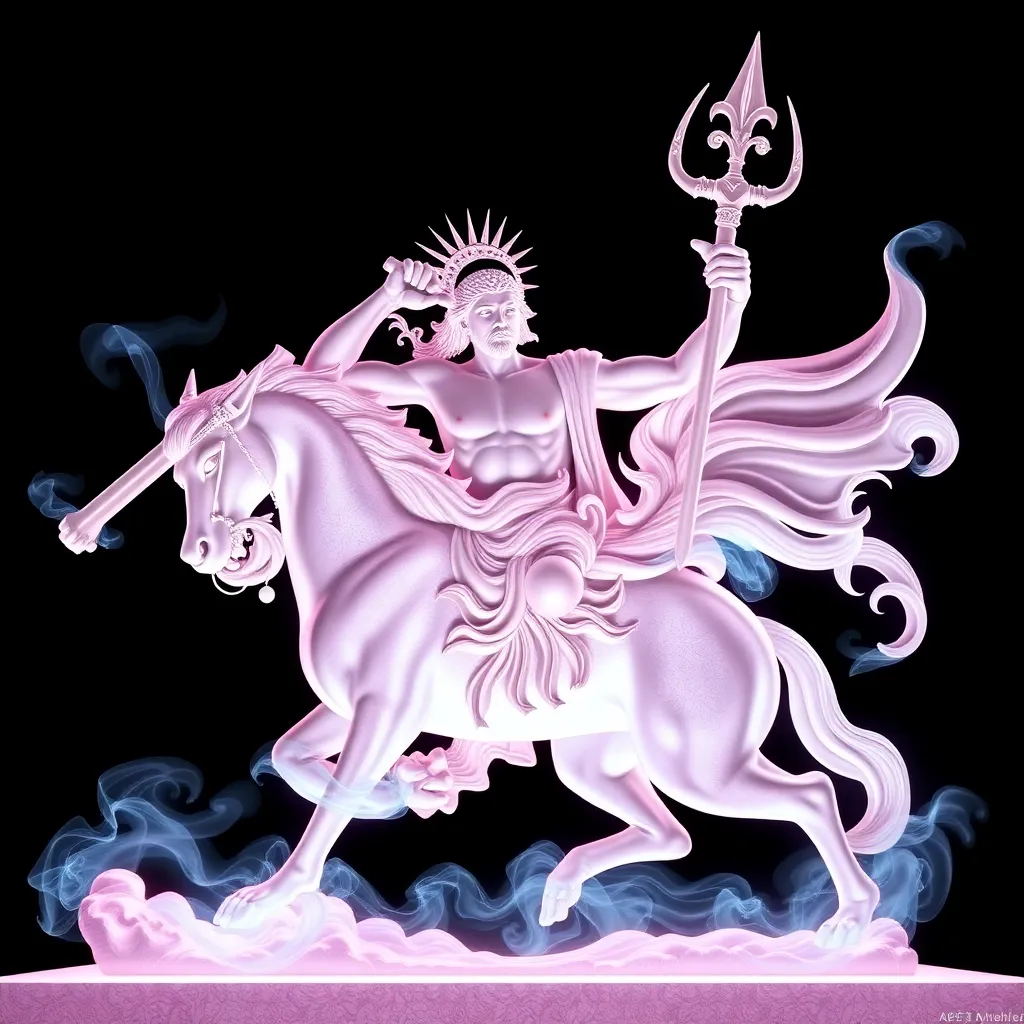The Symbolic Meaning of Perseus’ Actions: A Deeper Look
I. Introduction
Perseus, one of the most celebrated heroes of Greek mythology, is renowned for his daring adventures and formidable feats. His narrative encapsulates themes of heroism, courage, and the struggle against formidable odds. Understanding the symbolic meanings behind his actions provides valuable insights into the human experience and the archetypal journey every individual undertakes.
This article aims to delve deeper into the significance of Perseus’ actions, exploring how they resonate with themes of fear, divine influence, sacrifice, and the enduring legacy of heroism. By examining these elements, we can gain a richer understanding of both Perseus and the broader implications of his story in mythological context.
II. The Hero’s Journey: Perseus as the Archetypal Hero
The concept of the hero’s journey is a narrative framework that outlines a hero’s adventure, growth, and transformation. Joseph Campbell popularized this idea, detailing a series of stages that heroes often follow, including a call to adventure, trials, and eventual return.
Perseus’ call to adventure came when he was tasked to slay Medusa, a mission laden with danger and uncertainty. This call was significant, as it marked the beginning of his transformation from a mere mortal to a legendary hero.
Throughout his journey, Perseus faced numerous trials, each testing his courage and ingenuity. These challenges not only shaped him into a formidable hero but also allowed him to grow emotionally and spiritually.
III. The Slaying of Medusa: Confronting Fear and Evil
Medusa, one of the three Gorgons, is often seen as a symbol of fear and chaos. Her ability to turn men to stone represents the paralyzing effect of fear in our lives. By confronting and ultimately slaying Medusa, Perseus embodies the struggle against our personal demons and the chaos that threatens to overwhelm us.
The act of slaying Medusa serves as a powerful metaphor for overcoming fear. It illustrates that confronting evil, whether external or internal, is essential for personal growth and liberation. The consequences of this confrontation are profound; Perseus not only vanquished a monstrous foe but also liberated himself and others from the terror that Medusa represented.
IV. The Role of Divine Assistance: The Influence of the Gods
Perseus’ journey was significantly aided by divine gifts bestowed upon him by the gods. Among these were:
- A reflective shield from Athena, which allowed him to view Medusa without looking directly at her.
- Winged sandals from Hermes, facilitating swift travel.
- A magical sword from Hephaestus, capable of cutting through the toughest materials.
The symbolism of divine intervention in human endeavors highlights the complex interplay between fate and free will. While Perseus was destined for greatness, it was through his resourcefulness and acceptance of divine help that he achieved his goals. This balance between human effort and divine support remains a central theme in many mythological narratives.
V. The Rescue of Andromeda: Themes of Sacrifice and Redemption
The rescue of Andromeda adds another layer of depth to Perseus’ story. Andromeda, chained to a rock as a sacrifice to a sea monster, symbolizes vulnerability and helplessness. Perseus’ willingness to risk his life to save her illustrates themes of heroism and compassion in the face of dire circumstances.
This act of bravery not only redeems Andromeda but also reflects the complexities of love and sacrifice in relationships. Perseus’ actions embody the idea that true heroism often involves selflessness and the willingness to protect those who cannot protect themselves.
VI. The Use of Symbolic Artifacts: Shields and Swords
Perseus’ shield, in particular, plays a crucial role in his story. Its reflective properties allowed him to confront Medusa without succumbing to fear. This shield symbolizes inner strength and wisdom—the ability to face challenges while maintaining one’s composure and clarity.
Weapons in mythological narratives often carry significant meaning. They represent not just physical power but also the virtues of the hero wielding them. Perseus’ sword and shield together symbolize a blend of bravery, intellect, and the moral fortitude required to overcome obstacles.
VII. The Legacy of Perseus: Cultural Symbolism Through the Ages
Perseus holds a prominent place in ancient Greek culture, serving as an enduring symbol of bravery and the triumph of good over evil. His story has influenced countless works of art, literature, and film throughout history.
In modern interpretations, Perseus has been depicted in various forms, from ancient pottery to contemporary movies. These representations continue to explore themes of heroism, courage, and the battle against evil, highlighting the relevance of his story in contemporary society.
The enduring legacy of Perseus reflects the universal human experiences of facing fears, seeking justice, and the complexities of love and sacrifice, ensuring that his story resonates with audiences across generations.
VIII. Conclusion
In summary, the symbolic meanings of Perseus’ actions reveal profound insights into human experiences such as the confrontation of fear, the role of divine assistance, and the themes of sacrifice and redemption. Through analyzing Perseus’ journey, we can appreciate the depth of myth in understanding the intricacies of our own lives.
Perseus’ story continues to inspire and resonate today, serving as a reminder of the hero within each of us and the journey we all undertake in overcoming the challenges we face. The themes encapsulated in his narrative remain relevant, encouraging us to confront our fears, embrace our strengths, and act with compassion in the face of adversity.




